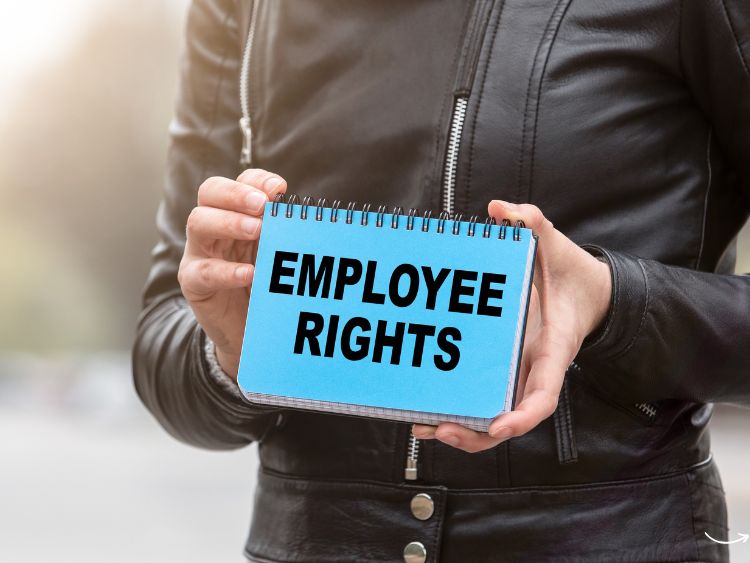Have you ever wondered what an Employee Rights Center does? Imagine a place where workers, regardless of their background or job type, can find support, guidance, and advocacy for fair treatment at work. Sounds ideal, right? In today’s competitive job market, knowing your rights as an employee is crucial. That’s where an Employee Rights Center steps in, acting as a beacon of hope and justice for workers facing challenges.
In this comprehensive guide, we’ll dive into the world of Employee Rights Centers, exploring their significance, the services they offer, and why every worker should know about them. Whether you’re dealing with workplace harassment, wage disputes, or need general advice on employment laws, this article will provide you with valuable insights and resources.
What is an Employee Rights Center?
An Employee Rights Center is a nonprofit organization dedicated to protecting and advocating for workers’ rights. These centers offer a wide range of services, including legal advice, educational workshops, and direct representation in disputes. They serve as a lifeline for employees navigating the often complex and intimidating landscape of labor laws and workplace regulations.
Why Do We Need Employee Rights Centers?
The modern workplace can be a minefield of issues, from discrimination and harassment to unfair dismissals and wage theft. Employee Rights Centers address these challenges by providing:
- Legal Assistance: Offering legal advice and representation in employment-related disputes.
- Educational Resources: Conducting workshops and seminars on labor laws and employee rights.
- Advocacy: Working to influence policy changes that protect and benefit workers.
- Support Services: Providing a safe space for employees to share their concerns and receive guidance.
Key Services Offered by Employee Rights Centers
1. Legal Advice and Representation
One of the primary services of an Employee Rights Center is providing legal assistance. Whether you’re facing wrongful termination, unpaid wages, or workplace discrimination, these centers offer expert legal advice to help you understand your rights and options.
Example Case Study: Jane’s Fight for Fair Wages
Consider Jane, a retail worker who discovered she was being paid less than her male counterparts. Unsure of how to address this, she approached her local Employee Rights Center. The legal team helped her file a complaint with the Equal Employment Opportunity Commission (EEOC) and eventually secure the pay she deserved.
2. Educational Workshops
Knowledge is power, and Employee Rights Centers empower workers through education. These centers host workshops and seminars on various topics, such as:
- Understanding Your Employment Contract
- How to Handle Workplace Harassment
- Navigating Workers’ Compensation Claims
3. Advocacy and Policy Change
Employee Rights Centers don’t just help individuals; they strive for systemic change. They advocate for policies that promote fair labor practices and protect workers’ rights. This advocacy can lead to significant changes in labor laws, benefiting countless employees.
4. Support Services
Sometimes, workers just need someone to talk to. Employee Rights Centers offer support groups and counseling services to help employees deal with the emotional stress of workplace issues.
How to Find and Utilize an Employee Rights Center
Locating an Employee Rights Center
Finding an Employee Rights Center is easier than you might think. Many cities have local centers, and a quick online search can point you in the right direction. Websites like www.workingamerica.org and www.employeerights.org offer directories of centers across the country.
What to Expect When You Visit
When you visit an Employee Rights Center, expect a welcoming and supportive environment. Here’s a typical process:
- Initial Consultation: Discuss your issue with a legal expert.
- Advice and Strategy: Receive guidance on the best course of action.
- Representation: If necessary, get legal representation for your case.
- Follow-Up: Continuous support and updates on your case’s progress.
Tips for Maximizing Your Visit
- Be Prepared: Bring any relevant documents, such as employment contracts, pay stubs, and correspondence.
- Be Honest: Provide a clear and accurate account of your situation.
- Ask Questions: Don’t hesitate to ask for clarification on any advice or instructions.
FAQs About Employee Rights Centers
What types of issues can an Employee Rights Center help with?
Employee Rights Centers can assist with a wide range of issues, including wage disputes, workplace harassment, discrimination, wrongful termination, and more.
Are services at Employee Rights Centers free?
Many Employee Rights Centers offer free or low-cost services, making them accessible to all workers, regardless of their financial situation.
Can an Employee Rights Center represent me in court?
Yes, many centers have legal teams that can provide representation in court or during mediation sessions.
How can I support my local Employee Rights Center?
You can support these centers by volunteering, donating, or participating in advocacy efforts. Check their websites for specific ways to get involved.
Conclusion
In a world where workplace challenges are all too common, Employee Rights Centers stand as a crucial resource for workers seeking justice and fair treatment. These centers provide invaluable services, from legal representation to educational workshops, empowering employees to stand up for their rights.
Remember, knowledge is power. By understanding what an Employee Rights Center can offer, you can better navigate the complexities of the workplace and ensure your rights are protected. Don’t wait until an issue arises—familiarize yourself with your local Employee Rights Center today and take charge of your workplace well-being.


